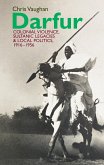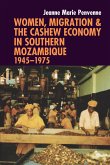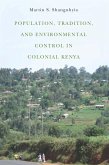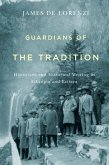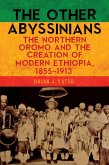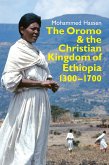Traces the consequences of agricultural development in western Kenya in the 1950s and 1960s
After more than fifty years of development, why have interventions and aid failed to yield greater poverty alleviation in Sub-Saharan Africa? Why did the agricultural development projects that were transpiring in places like Kenyaduring the "development era" of the 1950s and 1960s not take-off? Cultivating Their Own: Agriculture in Western Kenya during the "Development" Era explores these questions and others that continue to drive the research agendas of international aid agencies and development scholars in the twenty-first century. The book centers on four agricultural development projects unfolding in a densely populated rural area of western Kenya during the country'stransition to independence and its first few years under de facto one-party rule. Drawing on an array of primary sources and oral interviews, Saeteurn argues that the project of agrarianism failed to germinate in places like western Kenya because of competing interests, conflicting agendas, and structural problems inherent in the process of development at the international, national, and local level. Cultivating Their Own is a timely reminder of theimportance of paying attention not only to local people's aspirations but also to the realities of rural life when creating projects that mobilize agriculture for poverty reduction.
MUEY C. SAETEURN is assistant professor of history at the University of California, Merced.
Hinweis: Dieser Artikel kann nur an eine deutsche Lieferadresse ausgeliefert werden.
After more than fifty years of development, why have interventions and aid failed to yield greater poverty alleviation in Sub-Saharan Africa? Why did the agricultural development projects that were transpiring in places like Kenyaduring the "development era" of the 1950s and 1960s not take-off? Cultivating Their Own: Agriculture in Western Kenya during the "Development" Era explores these questions and others that continue to drive the research agendas of international aid agencies and development scholars in the twenty-first century. The book centers on four agricultural development projects unfolding in a densely populated rural area of western Kenya during the country'stransition to independence and its first few years under de facto one-party rule. Drawing on an array of primary sources and oral interviews, Saeteurn argues that the project of agrarianism failed to germinate in places like western Kenya because of competing interests, conflicting agendas, and structural problems inherent in the process of development at the international, national, and local level. Cultivating Their Own is a timely reminder of theimportance of paying attention not only to local people's aspirations but also to the realities of rural life when creating projects that mobilize agriculture for poverty reduction.
MUEY C. SAETEURN is assistant professor of history at the University of California, Merced.
Dieser Download kann aus rechtlichen Gründen nur mit Rechnungsadresse in A, D ausgeliefert werden.
Hinweis: Dieser Artikel kann nur an eine deutsche Lieferadresse ausgeliefert werden.



